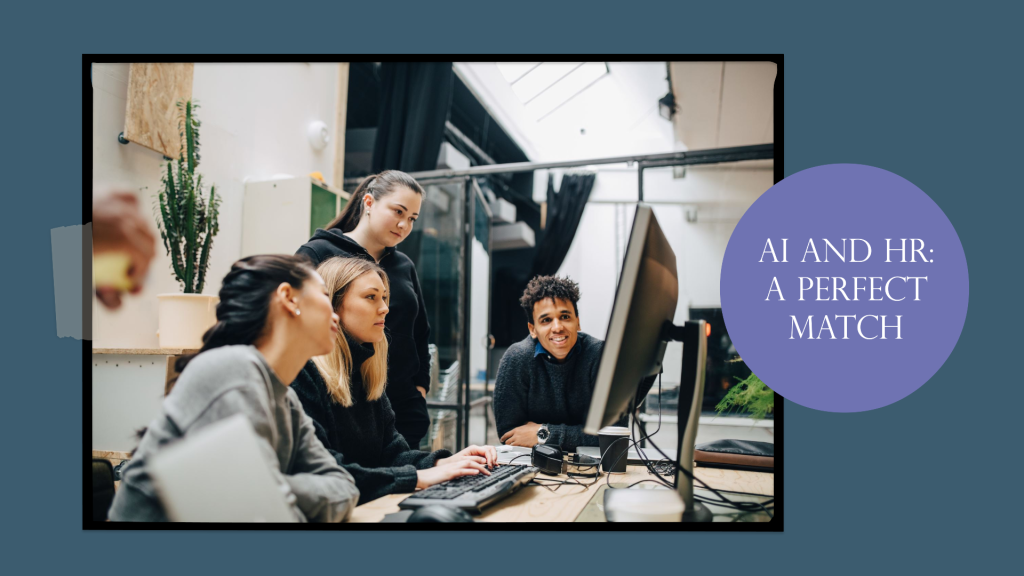
The fusion of artificial intelligence (AI) and human resources (HR) is reshaping the corporate landscape. From streamlining employee hiring processes to optimizing workforce management, AI is proving to be a game-changer. Let’s explore how this powerful duo is transforming the way organizations operate.
Revolutionizing Employee Hiring with AI
The traditional employee hiring process, often characterized by manual tasks and time-consuming procedures, is undergoing a significant overhaul thanks to AI. By automating routine tasks like resume screening and initial candidate assessments, AI empowers HR teams to focus on strategic initiatives and building strong candidate relationships.
- Accelerate the hiring process: AI-driven recruitment database software can rapidly analyze candidate profiles, matching them with suitable job openings. This accelerates the time-to-hire, allowing organizations to fill critical positions swiftly.
- Enhance candidate experience: AI-powered chatbots provide instant responses to candidate inquiries, creating a positive and efficient candidate experience.
- Data-driven decision making: Leveraging AI analytics, HR teams can identify top talent and make informed hiring decisions based on data-driven insights.
The Role of AI in Talent Acquisition
To truly understand the impact of AI on employee hiring, it’s essential to delve deeper into specific applications within talent acquisition.
AI-Powered Sourcing
AI can revolutionize the way organizations find and attract top talent. By analyzing vast amounts of data from various sources, including social media, job boards, and company databases, AI can identify potential candidates who possess the desired skills and experience. This helps recruiters cast a wider net and discover hidden gems.
Predictive Analytics for Talent Forecasting
AI can analyze historical hiring data to identify patterns and trends. This information can be used to predict future hiring needs, optimize sourcing strategies, and improve time-to-fill metrics. By anticipating talent shortages or surpluses, organizations can proactively plan their workforce.
Automated Candidate Screening
One of the most time-consuming tasks in the hiring process is screening resumes. AI-powered tools can quickly scan resumes, identify keywords, and match candidates to job requirements. This frees up recruiters to focus on more strategic tasks and building relationships with promising candidates.
AI-Driven Interview Scheduling
Coordinating interviews can be a logistical nightmare. AI-powered scheduling tools can optimize the process by considering candidate and interviewer availability, suggesting optimal times for interviews. This reduces scheduling conflicts and improves efficiency.
Virtual and Augmented Reality in Assessments
AI can be integrated with virtual and augmented reality technologies to create immersive and engaging candidate assessments. These assessments can evaluate candidates’ skills, problem-solving abilities, and teamwork in a simulated work environment.
AI-Powered Candidate Experience Platforms
To provide a seamless and personalized candidate experience, organizations can leverage AI-powered candidate experience platforms. These platforms offer a centralized hub for candidates to access job information, submit applications, and track their progress throughout the hiring process.
Empowering Your Workforce with AI
Beyond the hiring process, AI is revolutionizing how organizations manage and develop their workforce. By harnessing the power of AI, HR departments can create a more engaged, productive, and fulfilled workforce.
- Personalized employee development: AI-driven tools analyze employee performance data to recommend tailored training programs, fostering continuous growth and development.
- Optimize workforce planning: AI-powered analytics help organizations anticipate workforce needs, ensuring optimal staffing levels and resource allocation.
- Boost employee engagement: By identifying potential burnout risks and providing timely support, AI contributes to a positive and engaged workforce.
The Role of AI in Human Capital Management
AI is transforming human capital management (HCM) by providing data-driven insights into the workforce. By analyzing employee data, organizations can identify trends, optimize talent management strategies, and make informed decisions.
AI-Driven Performance Management
AI can automate routine tasks in performance management, such as goal setting and feedback collection. By analyzing employee performance data, AI can identify top performers, identify areas for improvement, and provide insights into talent development needs.
AI for Succession Planning
AI can help organizations identify high-potential employees and create development plans to prepare them for future leadership roles. By analyzing employee performance data, skills, and career aspirations, AI can identify potential successors and create tailored development paths.
AI-Powered Compensation Analysis
AI can analyze compensation data to identify pay gaps, ensure fair compensation practices, and optimize salary structures. By comparing employee salaries to market data, organizations can ensure competitive compensation packages.
AI for Employee Well-being
AI can play a crucial role in promoting employee well-being. By analyzing employee data, such as work hours, productivity, and engagement levels, AI can identify potential burnout risks and provide early interventions.
Overcoming Challenges and Embracing the Future
While AI offers immense potential, it’s crucial to address challenges such as data privacy and algorithmic bias. By implementing robust security measures and continuously monitoring AI systems, organizations can mitigate these risks.
The future of HR is undoubtedly intertwined with AI. By embracing this technology and leveraging its capabilities, organizations can create a more efficient, data-driven, and employee-centric workplace. As AI continues to evolve, we can expect even more groundbreaking innovations that will shape the future of work.
Are you ready to harness the power of AI to transform your HR function? Share your thoughts and experiences in the comments below.


